Land Hey(Sisters duo|“The Power of Sign Language” delivered by sisters)
2025.10.09
A marathon legend
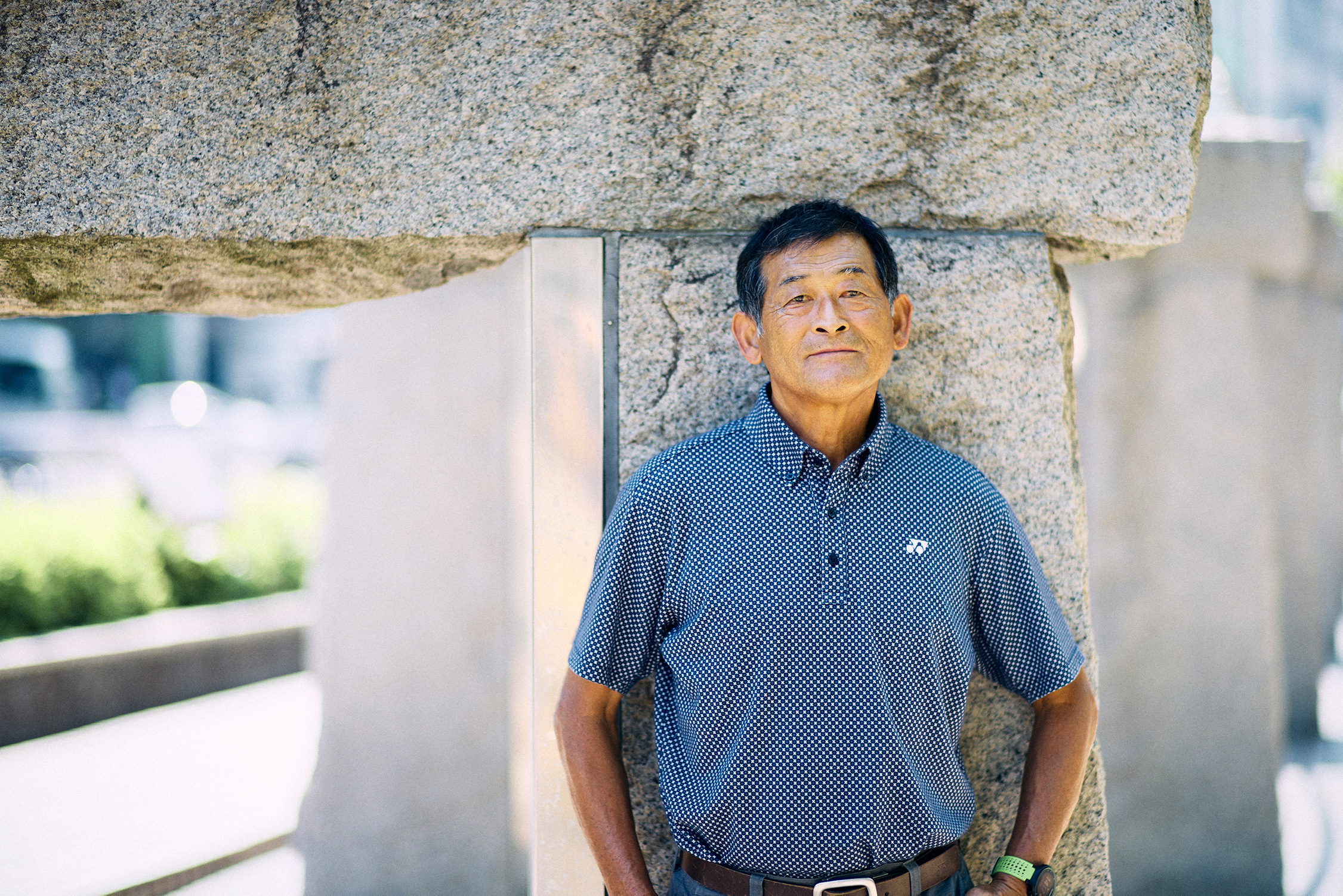
2024.06.24
The memory is still vivid today.
He won gold medal in the Men’s marathon at the Tokyo 1991 World Athletics Championships.
Hiromi Taniguchi spoke in detail about the scene at the time.
In 2025, the World Athletics Championships will return to Tokyo for the first time in 34 years.
What should we do to recreate that scene?
目次
―What was the role of the Tokyo 1991 World Athletics Championships for you?
Taniguchi At that time, I was unable to participate in the Seoul 1988 Olympics, and was at a crossroads as to whether or not to continue with track and field. However, there were various encounters, and while I was starting to aim for the Barcelona 1992 Olympics, the Tokyo 1991 World Athletics Championships were held. The event for me was positioned as “participating in the World Athletics Championships = leading to the Olympics”. I was chosen to be on the Japanese team in March 1991, and since I had placed 9th in the Tokyo International Marathon the previous month, I thought I would not be selected, but then I received a call from the board of directors… After that, I hurriedly prepared for the event.
―What preparations did you make?
Taniguchi The Tokyo International Marathon in February 1991 was my 13th race, and I had videotaped all the races I had run so far, so I carefully reviewed them. I kept records of my training before each race, as well as my physical condition and what I ate, and also kept my reflection on the race. (Taking out his notebook) there are various comments reflecting the race in here. By practicing in the heat, I was able to examine the changes in my body and accumulate data on how my body reacts to drinking and not drinking water. Convert everything you should and shouldn’t do during the race into data. Based on that, I started creating the script 100 days before the competition.
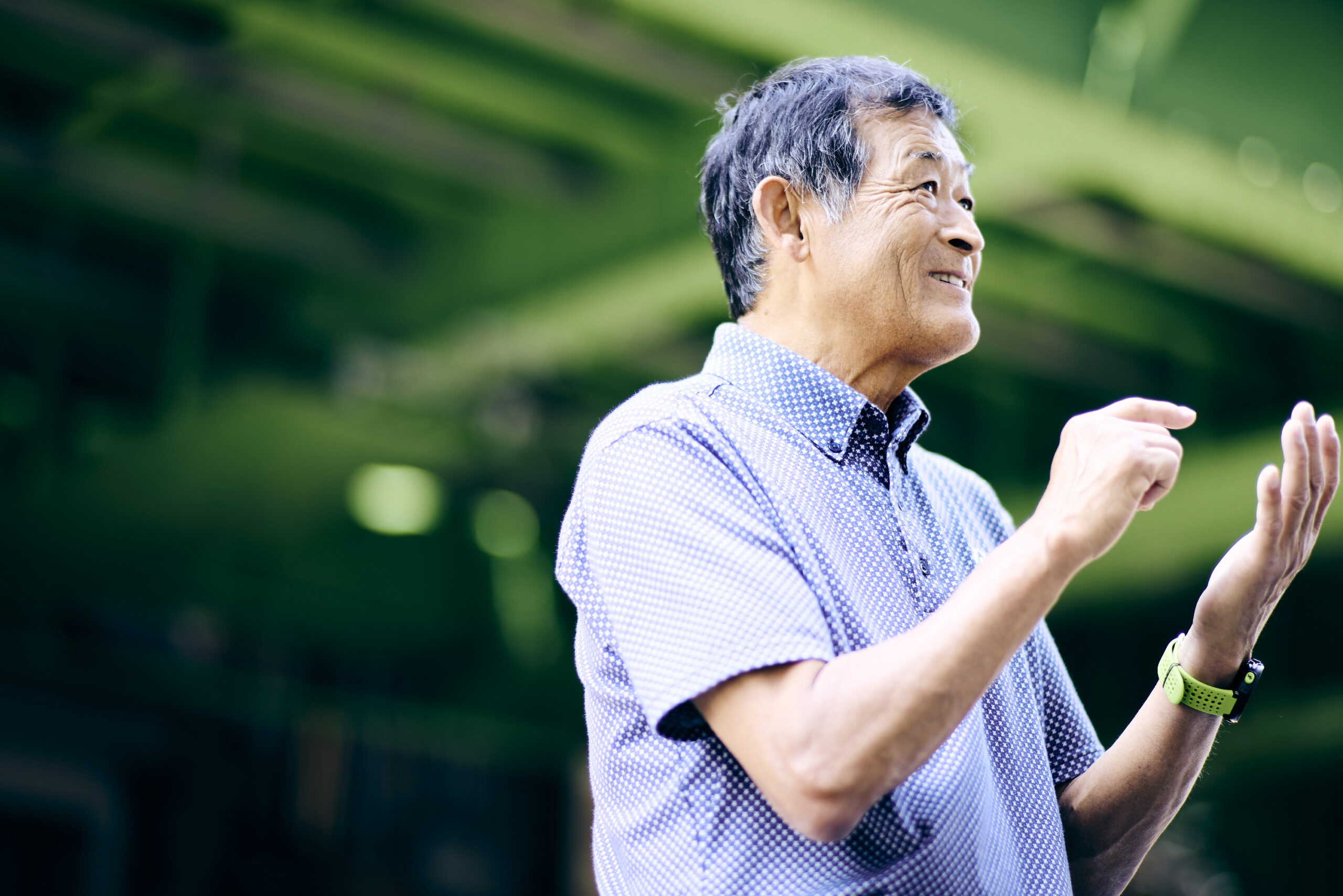
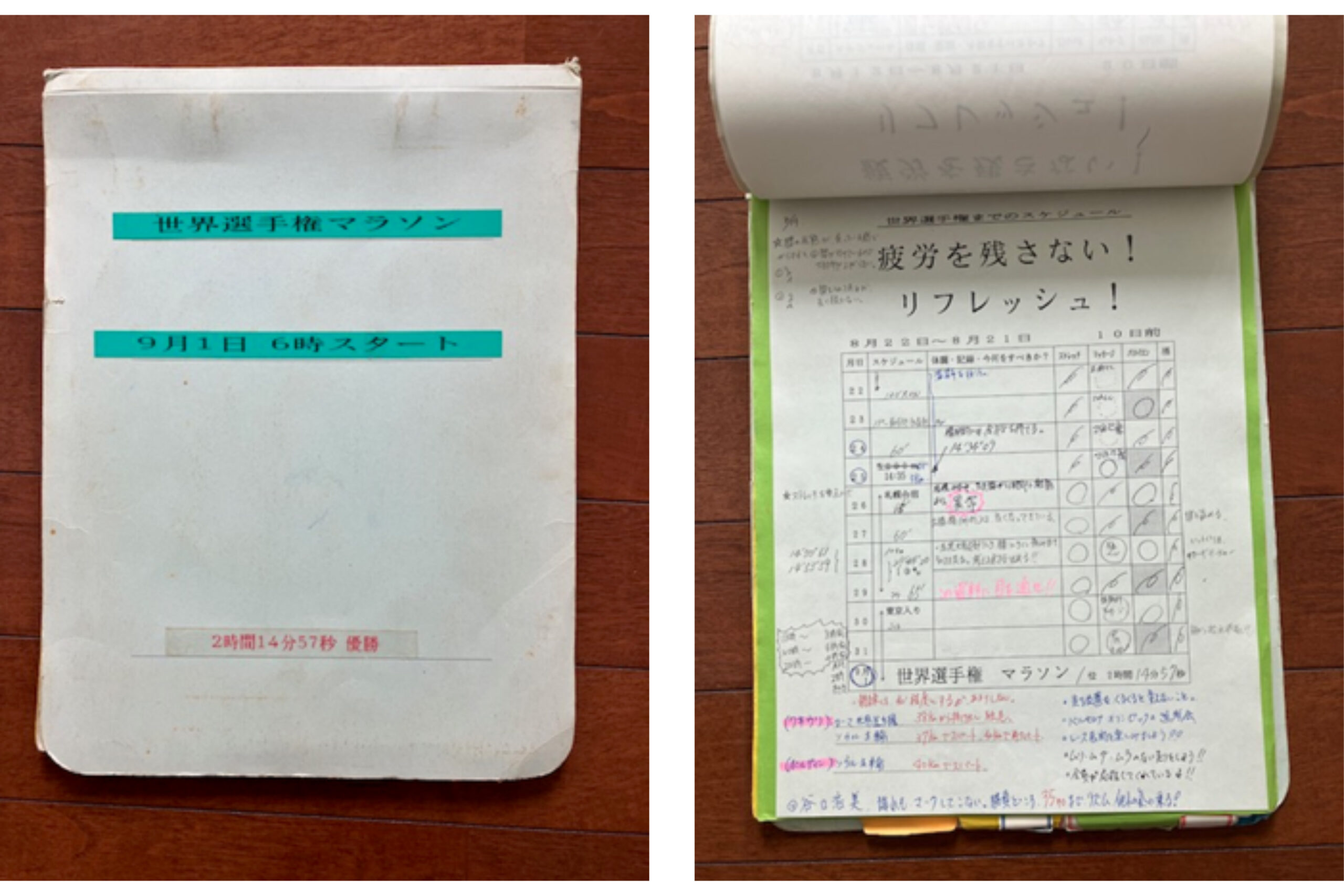
―As a result, you were able to finish the race according to your own image?
Taniguchi Yes. Race is a living thing, so there are responses depending on the situation, but in the end it all worked out according to the script.
―So, could you please look back on the race?
Taniguchi Water was provided during the first 5km, but unlike now, all the athletes’ bottles were on one table. As we run in a big group in the beginning, the staff gets in the way when we pick up the bottles (laughs). So, while asking the staff to move away, I ran to the left side of the table (the side where the staff was) and made sure to grab the bottle with my right hand. Normally I would run to the right side of the table and grab the bottle with my left hand, but in the past it was difficult to grab the bottle because everyone was so desperate. Then, just before 15km, Nakayama (Takeyuki) increased his speed and picked up the pace. There was also a water station, but Mr. Nakayama couldn’t grab the bottle… At the same time as I took my bottle, I also took Mr. Nakayama’s bottle and handed it to him. When I looked at Mr. Nakayama’s face, he had sunken cheeks, so I thought, “It is going to be tough for Mr. Nakayama today”. I realized that when I gave him the bottle, so I guess I was lucky.
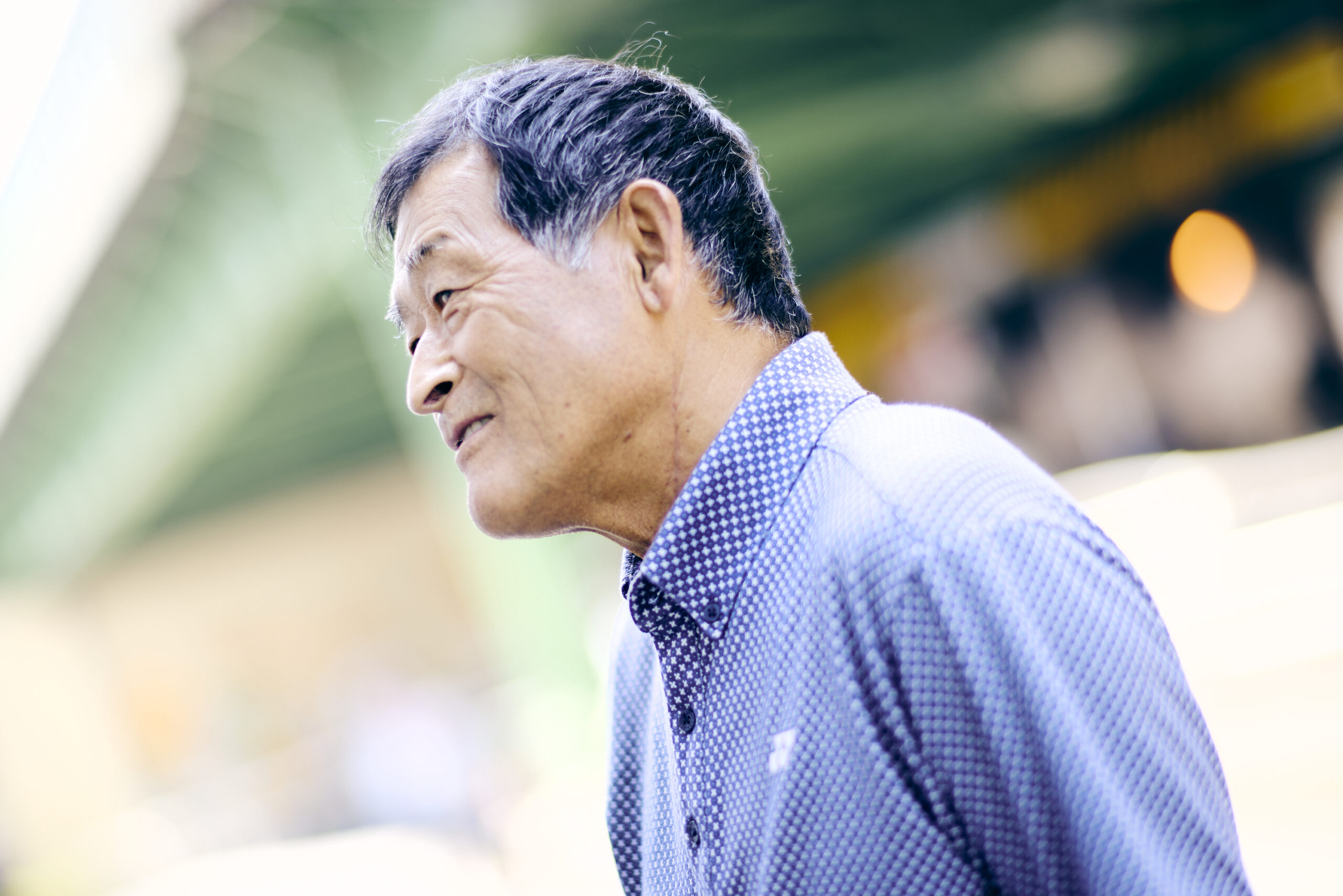
―That kind of things happens.
Taniguchi Then, at the point where I passed 30km, there were 16 people, and I thought I wouldn’t be able to win a medal if I continued like this, so I jumped out to the front at the water station after 30km. I had a strategy here as well, and I thought that the other athletes will be able to run with peace of mind knowing that I just went to the front to get water. So as soon as I grabbed the bottle, I made a spurt. The athletes behind were looking at the water table, so I was out of sight from them. I wanted to use that opportunity to speed up by about 1km and try to run solo, but I could tell from the presence of someone behind me and their breathing that I was being followed, and so I thought, “Ah, I’m tired!” and stepped back.
―What did you do then?
Taniguchi I was about to give up, but as I passed the 35km mark, Mr. Shinohara, who was running alongside me, pressed his watch. When I saw that, I thought to myself that if Mr. Shinohara could afford to push the clock, then I should have more leeway. As we passed under the guard of Suidobashi and turned left, the group ran toward the cooler side which is in the shadow of the Tokyo Metropolitan Expressway. However, there was a TV relay van on my right side, so I went towards the center line where the sun was shining, purposely chased the TV relay van and sped up to use it as my pacemaker. Other athletes followed me, but they probably ran longer than me as they ran diagonally. I quickly picked up the pace and the group split up at an uphill slope. From there, the only way was to run away from them. In my script, I had written a 38km uphill spurt. It feels like I followed that plan and made it to the goal.
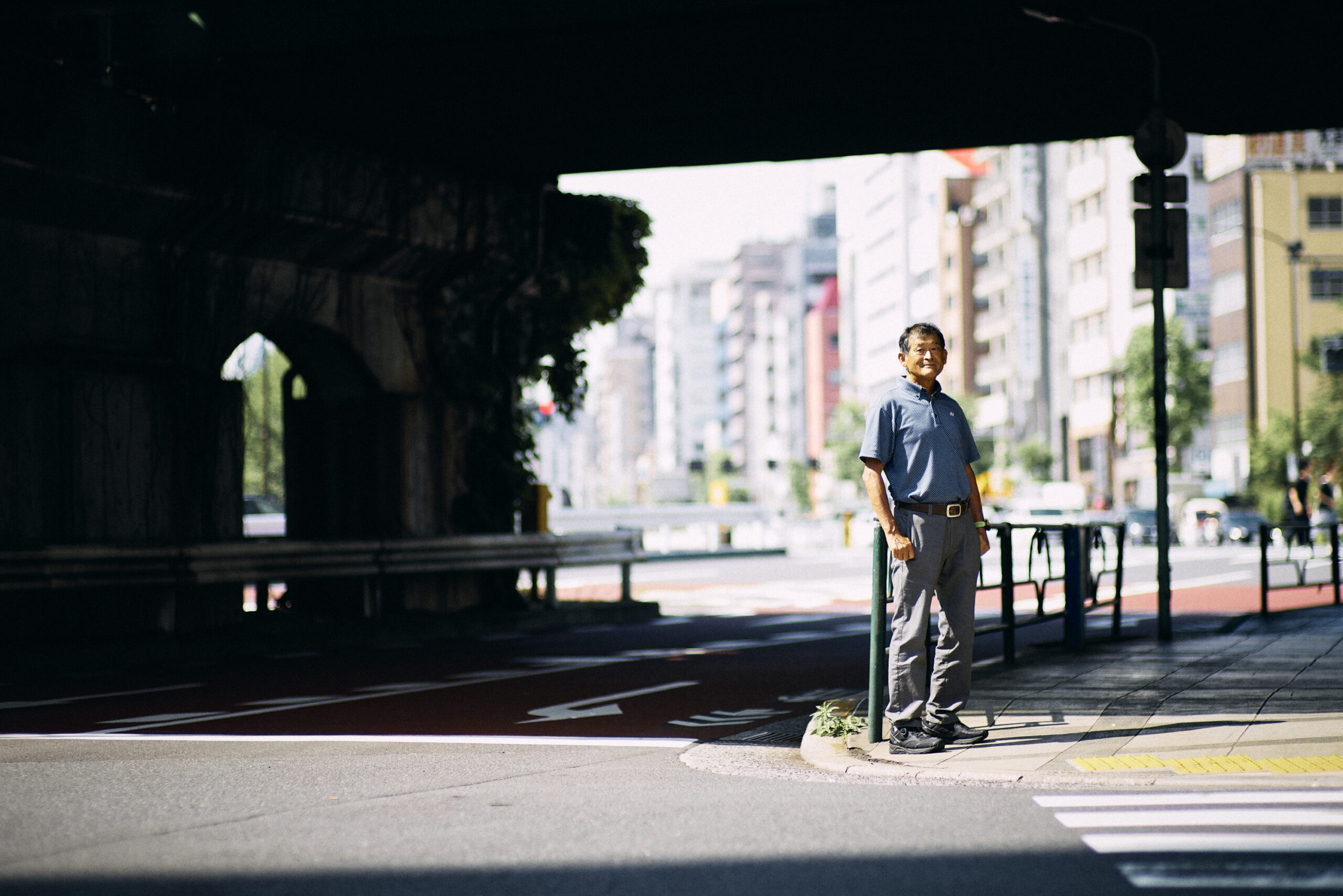
―The race was according to your scenario. Do all the athletes write such a script?
Taniguchi No, I don’t think they do that much. I was doing it because I was weak. If I was strong like Mr. Nakayama, I will win if I start and come back. In order to win against such a strong player, I had no choice but to make him feel impatient. If I don’t sacrifice myself to win, chances won’t arise.
―What did you feel when you won?
Taniguchi Well, my heart was filled with great joy (laughs). At the time, it was the third time that the World Athletics Championships was held, but in the past two events athletes from the host country had always won the gold medal. There was also discussion about why the event was being held if there were no athletes who could win a gold medal in Tokyo. That’s what I took at the very end, so it’s already a celebration. Apparently no one had prepared the Hinomaru flag for the winning run. I have heard that they have borrowed from the people waving flags near the Olympic Cauldron at the National Stadium (laughs). So when I was doing a winning run by unfolding the Japanese flag, a bouquet of flowers was thrown in. I also found out later that the person who brought the bouquet was apparently a fan of Mr. Nakayama… Of course I didn’t know this so I just accepted it as a “thank you” and ran. I guess I didn’t have any fans (laughs).
―No No, I don’t think so (laughs).
Taniguchi Well, I now think that in many ways, the Tokyo 1991 World Athletics Championships was where I was able to express myself to the fullest.
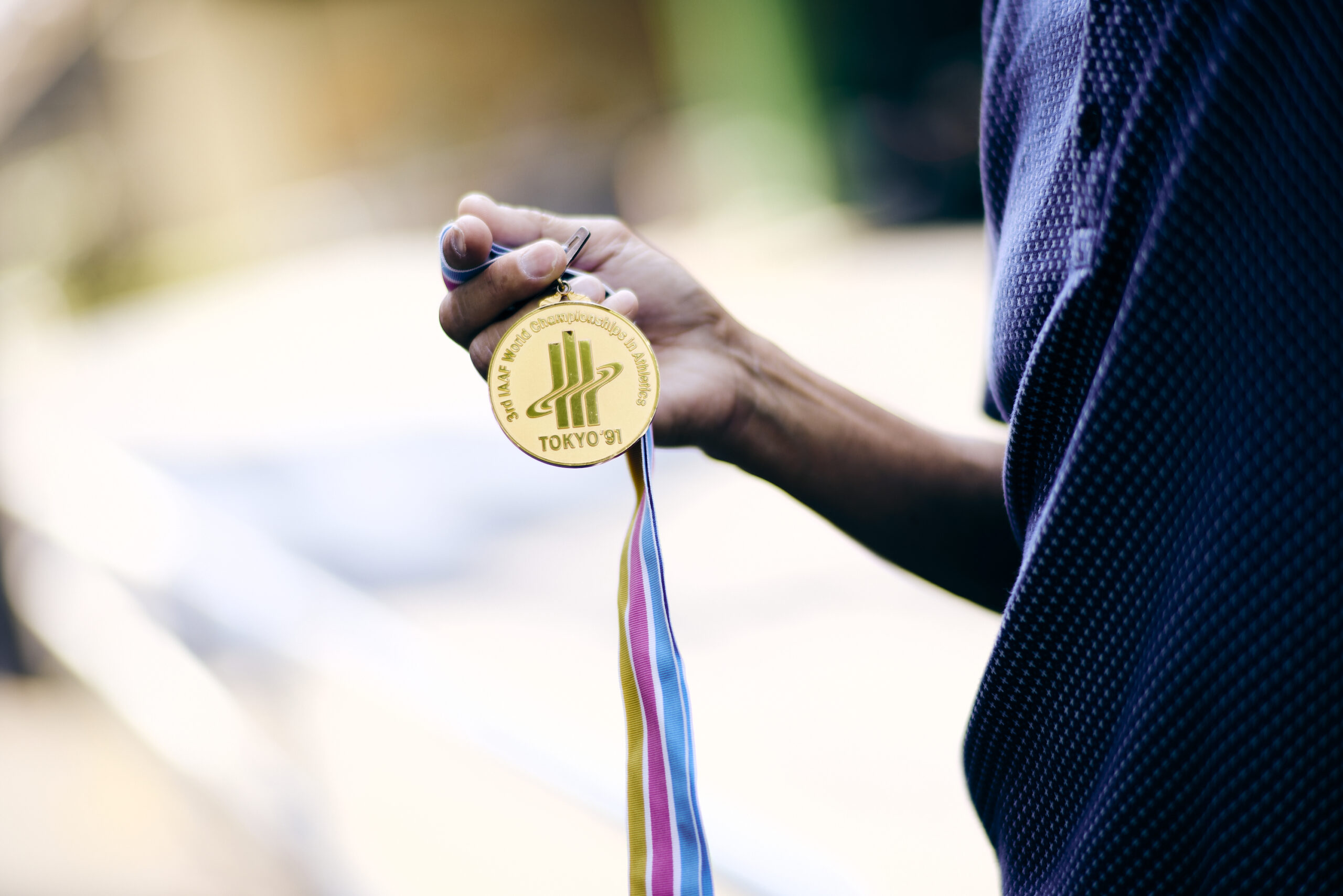
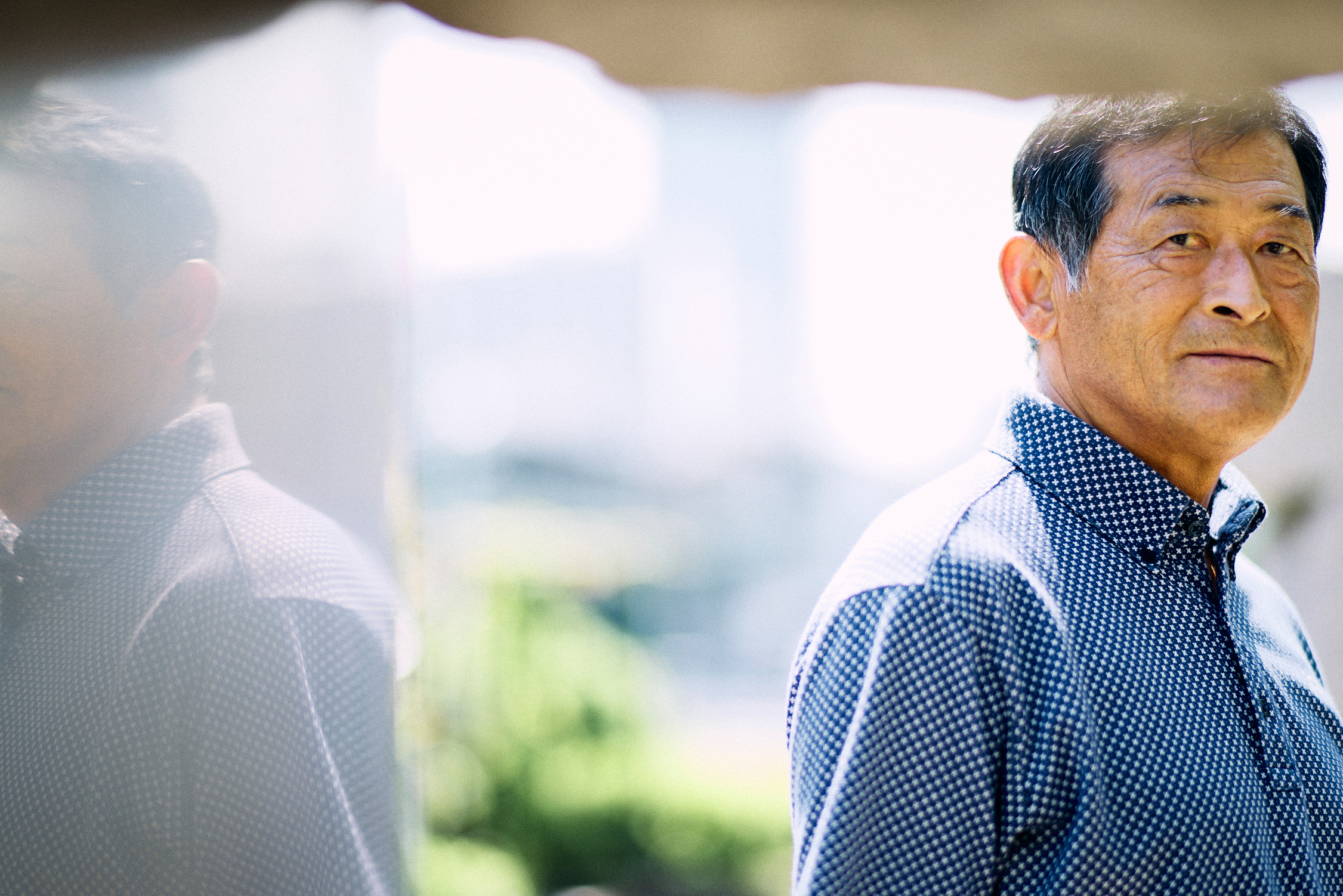
―At the Barcelona 1992 Olympic Games, which was held the year after the World Athletics Championships, I think there were some difficult moments as you were in a position where you were being chased. What were your thoughts going into this?
Taniguchi I can tell you now, but I actually suffered a stress fracture before the event, and was secretly admitted to a hospital in Mie Prefecture two months before the event. I spent about one months in the hospital. If the media had found out at that time, I wouldn’t have been able to make it to the starting line. Nothing was reported at that time. I was discharged from the hospital a month before the competition, and then I finished the 1992 Olympics in Barcelona.
―The result was 8th place.
Taniguchi I thought that if the race went normally, Koichi Morishita would win. When I went to Barcelona for a test run, I kept thinking about where I could beat Morishita. (Taking out a map) this is the map for the test run. I saw the video later, and the battle between Morishita and South Korea’s Hwang Yong-jo, who won the gold medal, came to an end on the 40km downhill slope of Montjuïc. I had also written a script thinking that I might be able to beat Morishita if I made a spurt on the 40km downhill stretch. It is written on this map also. But unfortunately he wasn’t there (laughs).
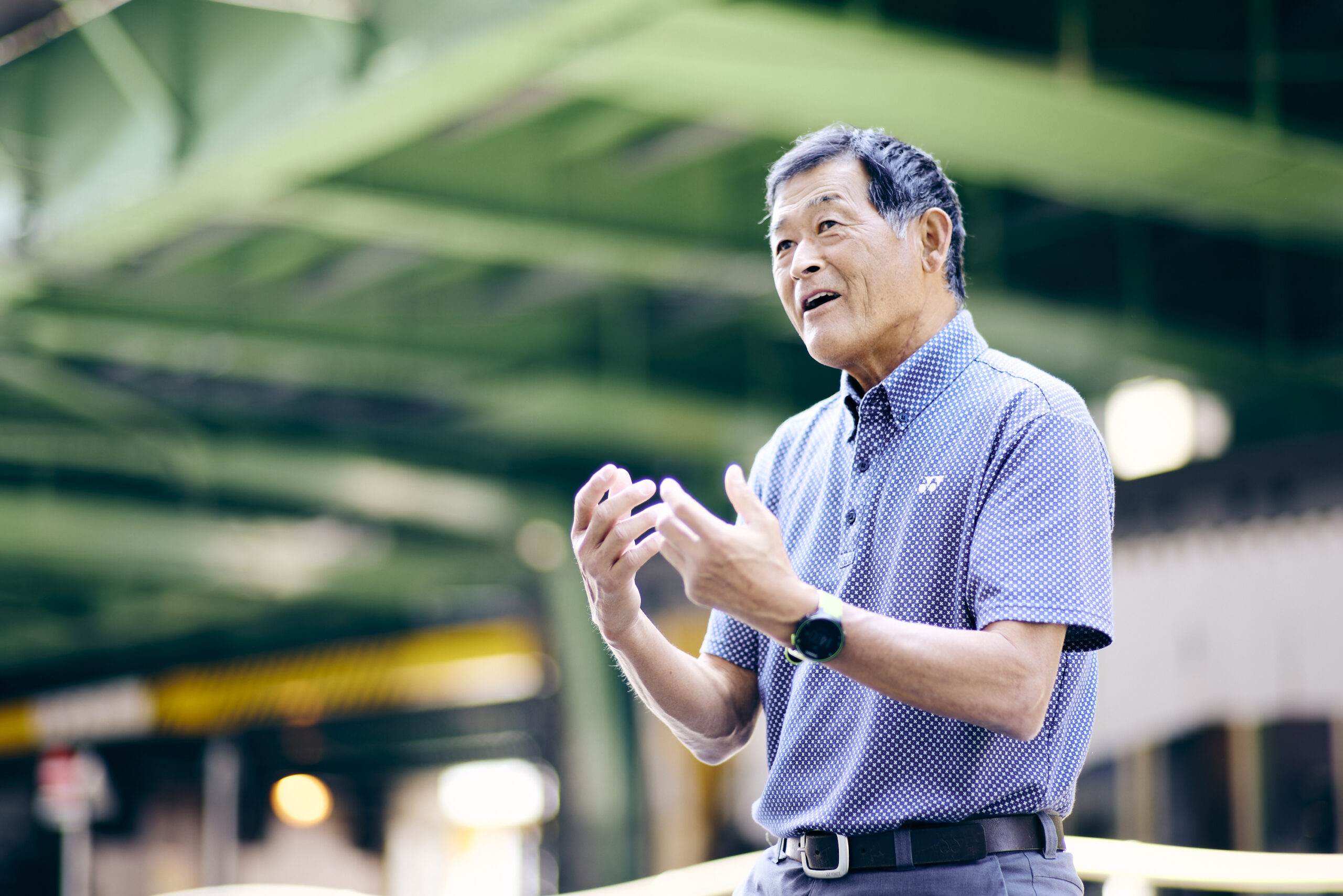
―There was also a famous quote by you, “I fell over”.
Taniguchi No, no, that isn’t a quote (laugh). Even though I won the World Athletics Championships, why did I come in 8th place at the Olympics? That was my evaluation. I fell over but I tried to win a medal at least somehow, so I said, “8th place, 8th place”, and then I came back and said, “sorry, I fell over”. That was an excuse. Naturally, I explained the situation, and it meant, “I just won the prize, so please forgive me”.
―That’s what you felt when you made the comment.
Taniguchi When I got off the plane after returning home, the medalists were on the left and the rest were on the right, so when I went to the right, reporters and TV cameras followed me. When I told them that “The medalists are over there” , “No, Mr. Taniguchi. Something outrageous has happened” and the reporter showed me a sport newspaper… And there was a headline saying “He fell over. What a nice guy Mr. Taniguchi is” (laugh). It surprised me. I guess my excuse started swimming with its tail and dorsal fin attached. Life was difficult for about a month after that.
―Since the Barcelona 1992 Olympics, Japan’s Men’s marathon has not been able to compete for medals on the world stage. What do you think about this situation?
Taniguchi I have been away from the sports field for some time so I can’t really say, but I feel that the inquisitive spirit and rebellious spirit needed to achieve results in the marathon are becoming insufficient among the athletes. Recently, records have increased dramatically with carbon-filled shoes, and I feel like we’ve lost the basic idea that you can’t get stronger without running. With technological innovation in the world, there are more fun things to do than running. Athletes who joined sports team around the time video games came out were playing games until late at night and sometimes didn’t show up for morning practice. I think the game-like feeling of having to reset and try again because you won’t get any results no matter how much you try continues to lead to marathons.
―It is also a difficult problem that as technology develops, we lose our basic idea.
Taniguchi Also, the number of track meets and competitions has increased significantly. If it doesn’t work this time, I can have the mindset of quitting early and preparing for the next event. There weren’t many opportunities like that in our time, so we cherished each race immensely. Whether the result is good or bad, you will find the real challenge by running desperately. If I lost, I would write a reflection letter saying I lost, and if I won, I would write a reflection letter saying I won. Perhaps there is something missing in terms of researching oneself.
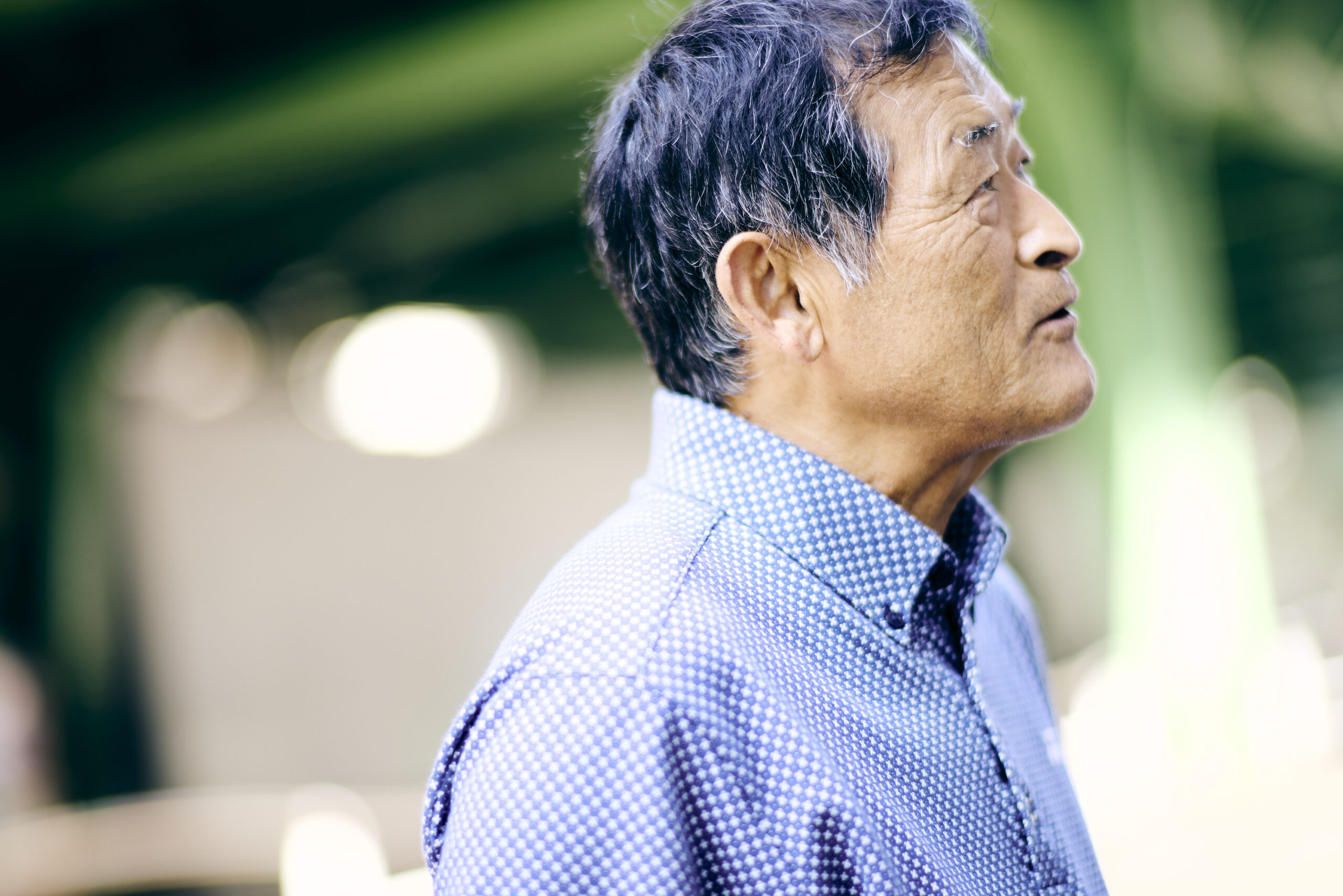
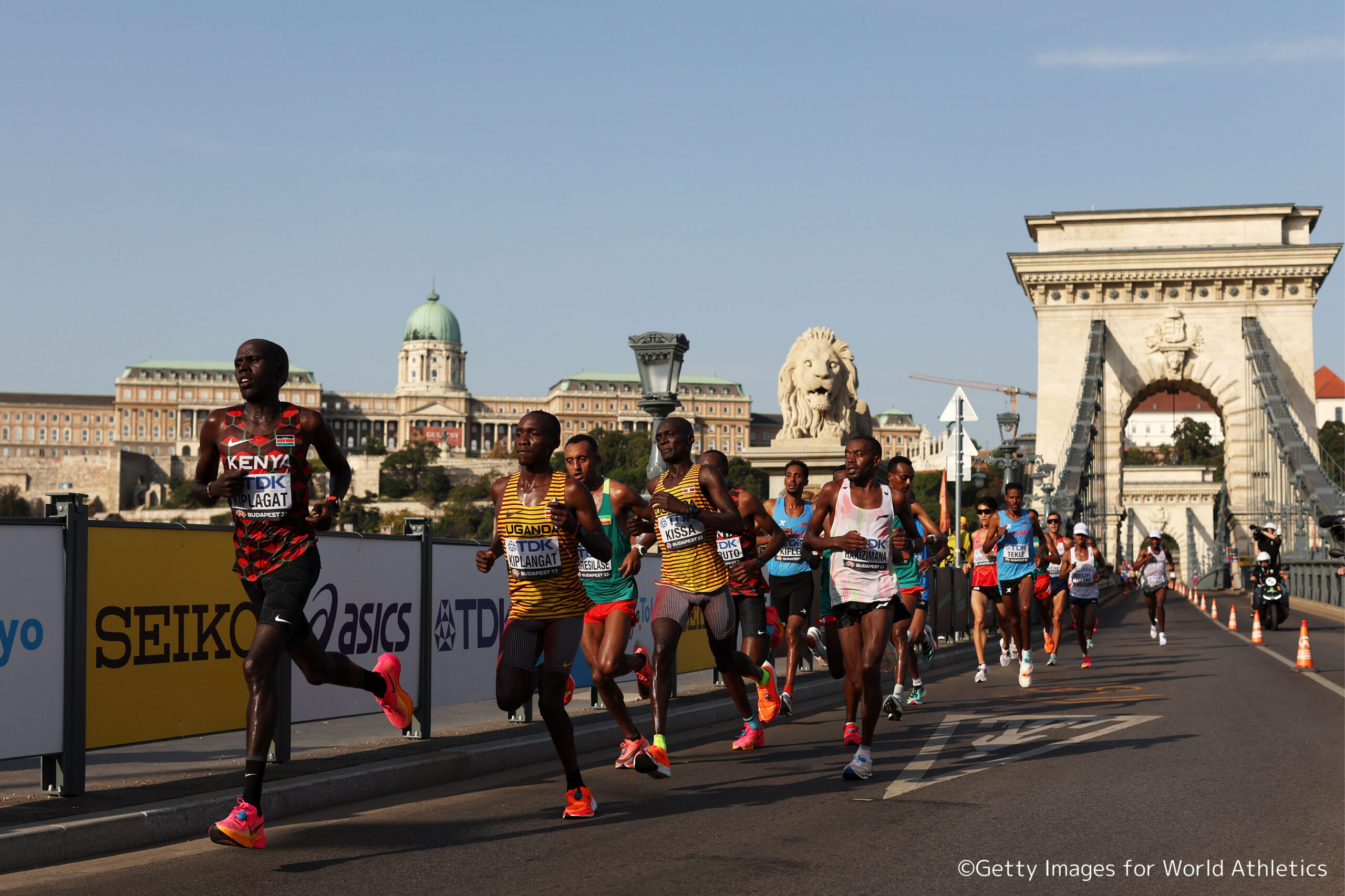
―What do you think should be done to solve such issues?
Taniguchi Japan is a corporate sport, so the athletes say, “Thank you, thank you”, but the only way to repay them is to produce results. Everyone is doing their best. However, are they working hard to convey the message to the viewers? Japanese people should have someone by their side who can give them strict advice. Even athletes take the easy way out. At the World Athletics Championships and the Olympics, even the coaches are soaring. I think it would be better to have someone like an advisor who can point this out objectively. Previously, there was an atmosphere among the Japanese team that said, “We can’t go back to Japan with a result like this”. It may not go well with the world today, but I’ve always believed that “results are everything” ever since I was an active player. The marathon will run for less than 2 hours, so I want you to prepare to the best of your ability and connect it to the actual run.
―Please tell us any athletes you are interested or recommend.
Taniguchi If you think about it in terms of running to the fullest, it would be Yuki Kawauchi.Everyone applauds for your hard work, so I want other athletes to do their best to promote themselves as well. But to be harsh, I don’t have high expectations for other players. This is because there are no athletes who can run consistently. Running consistently means having your face remembered which is equal to strength. Carbon-filled shoes came out, and in February 2021, Kengo Suzuki set a Japanese record of 2 hours, 04 minutes, and 56 seconds at the Lake Biwa Mainichi Marathon. But Kengo Suzuki has not been able to run consistently after that. Having more people remember your face will improve your competitiveness, and the more people who support athletes, the stronger the athletes will become. So I want our athletes to consistently produce results, and I want them to become athletes that everyone has high expectations for. I even think it would be a good idea to set up one slot for national team athletes that everyone can choose from other than the MGC.
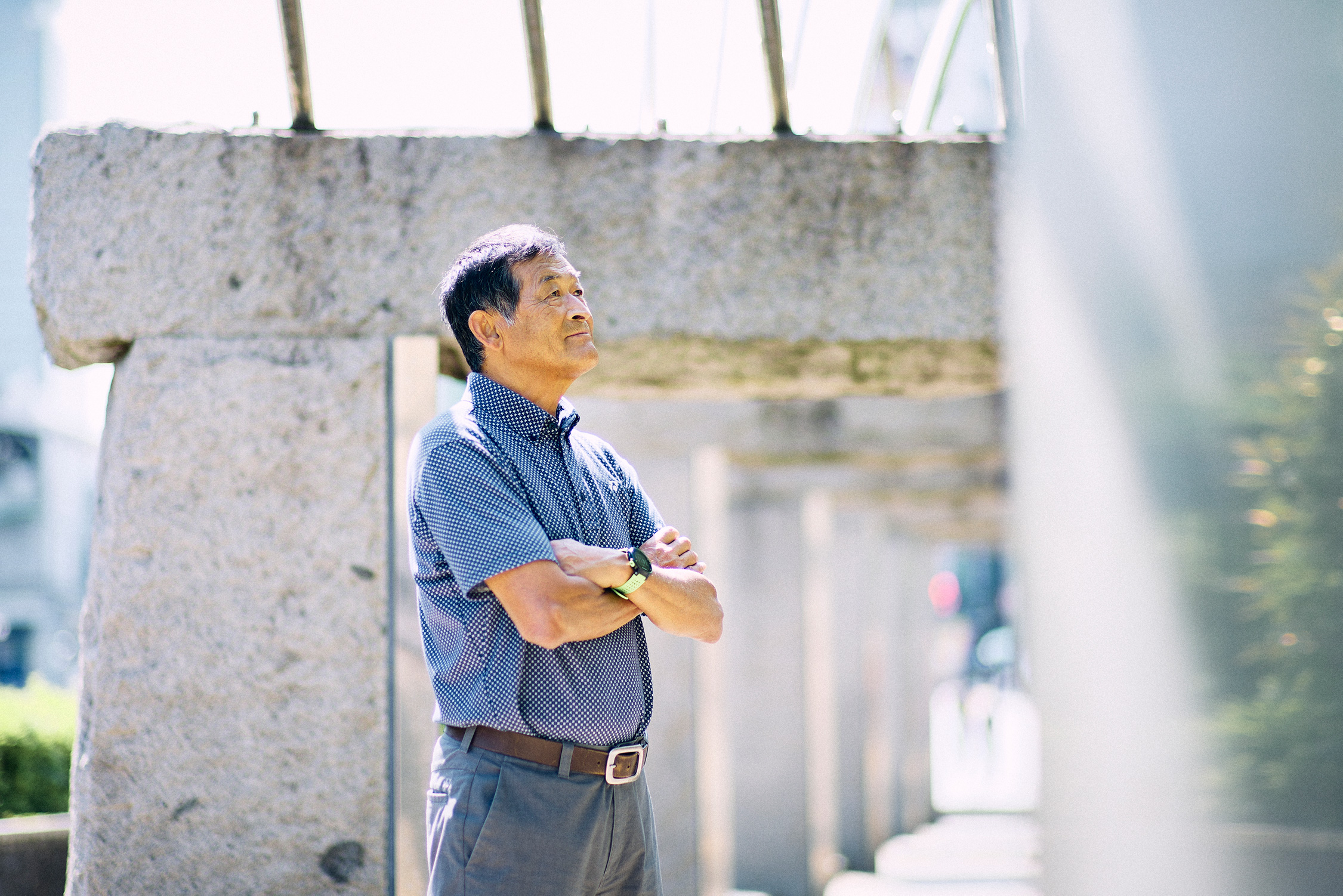
―If a star athlete emerges or a Japanese athlete performs well, I think the attention will naturally rise. However, please tell us if there is anything else that can be done to make things more exciting?
Taniguchi I think it’s important to start by saying, “Let’s support this athlete in this event”. Even children cannot understand just by telling them, “There are these types of events in track and field”. There are only a limited number of events that people are familiar with, such as the 100m, 200m, and marathon, so we need to do more to promote that there are athletes like this in these events. Also it is not enough just to call the athletes by their last name when cheering them. You should support them by calling their first names.
―Oh, is that true?
Taniguchi This could be a great power. For example, “Hiromi, do your best” makes me feel like “You’re cheering for me” rather than saying “Taniguchi, do your best”. Even though I’m feeling nervous, I feel relieved and relaxed for a moment when my name is called. So it is important to call out their first names. This championship will be held in Japan, so all the Japanese athletes can understand the language. Don’t talk about negative things, just talk about positive things out loud. Giving athletes lots of words that encourage them to do their best will give them strength.
―Finally, do you have a message for our readers who are looking forward to World Athletics Championships Tokyo 25?
Taniguchi The world’s premier track and field competition to determine the world’s best in the basic human movements of “running, walking, throwing, and jumping” will be held in Tokyo for the first time in 34 years! It will be an once-in-a-lifetime opportunity to see the best performances of top athletes from around the world up close. I want many people to visit the National Stadium so they don’t miss it. Being able to watch the event in real time without any time difference is a privilege of showing the event on TV. I’m sure you’ll feel some emotion, courage, etc. I think there are many ways to enjoy watching the event, and one way to enjoy it may be to look for your favorite athlete in this event, regardless of whether it’s a Japanese athlete or an overseas athlete.
Your support will provide strength to the athletes! Let’s cheer the athletes by calling out their names.
I will also cheer.
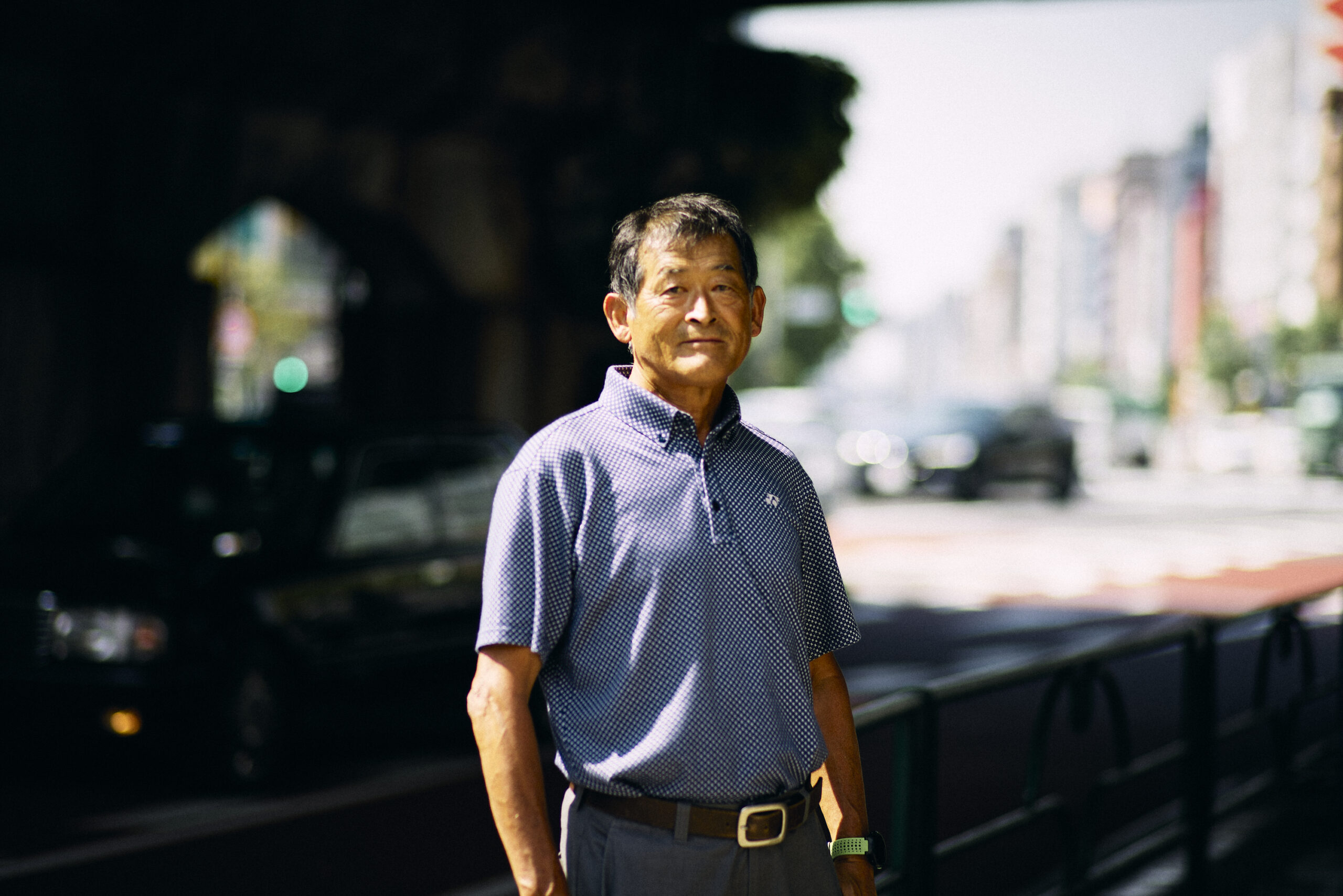
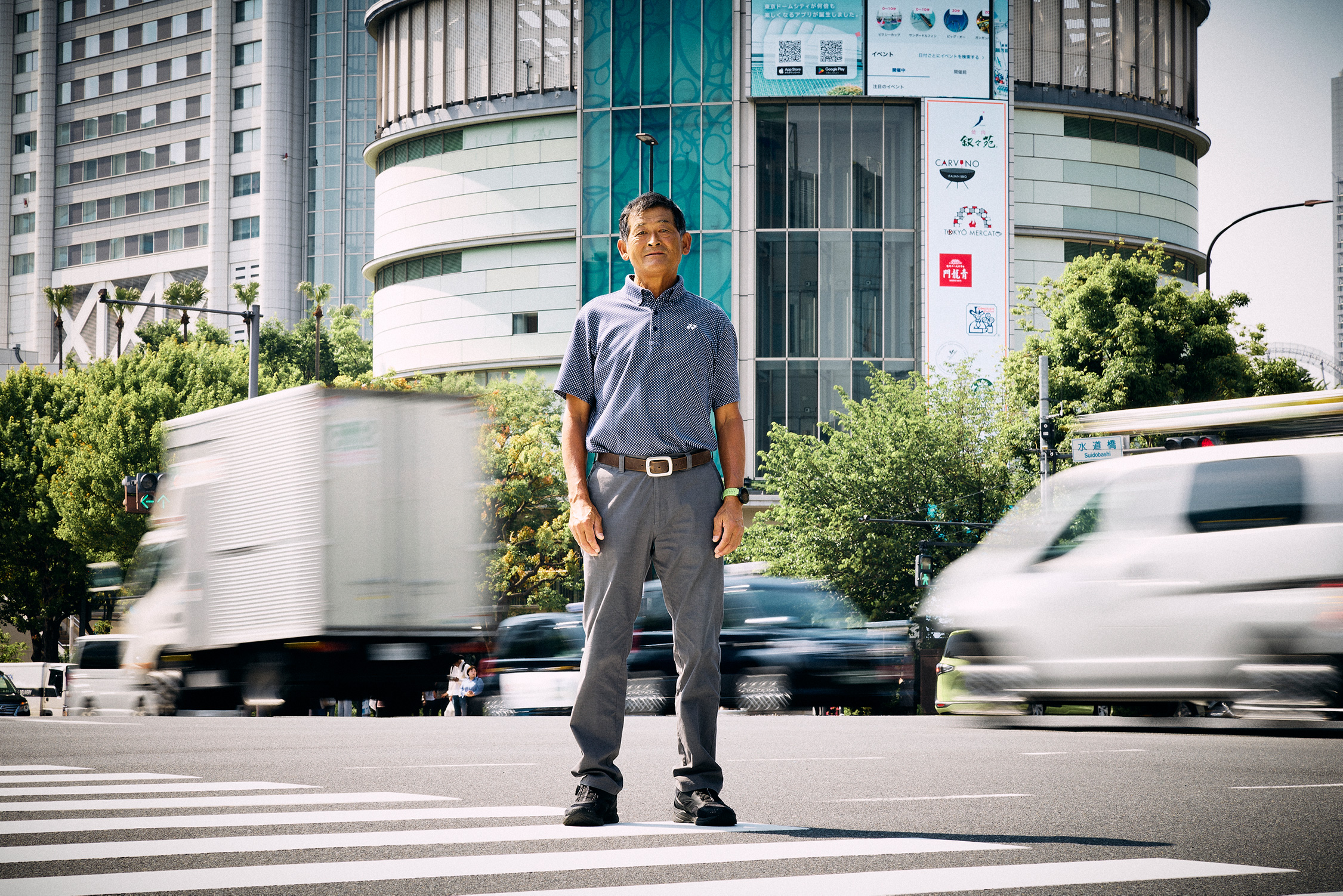
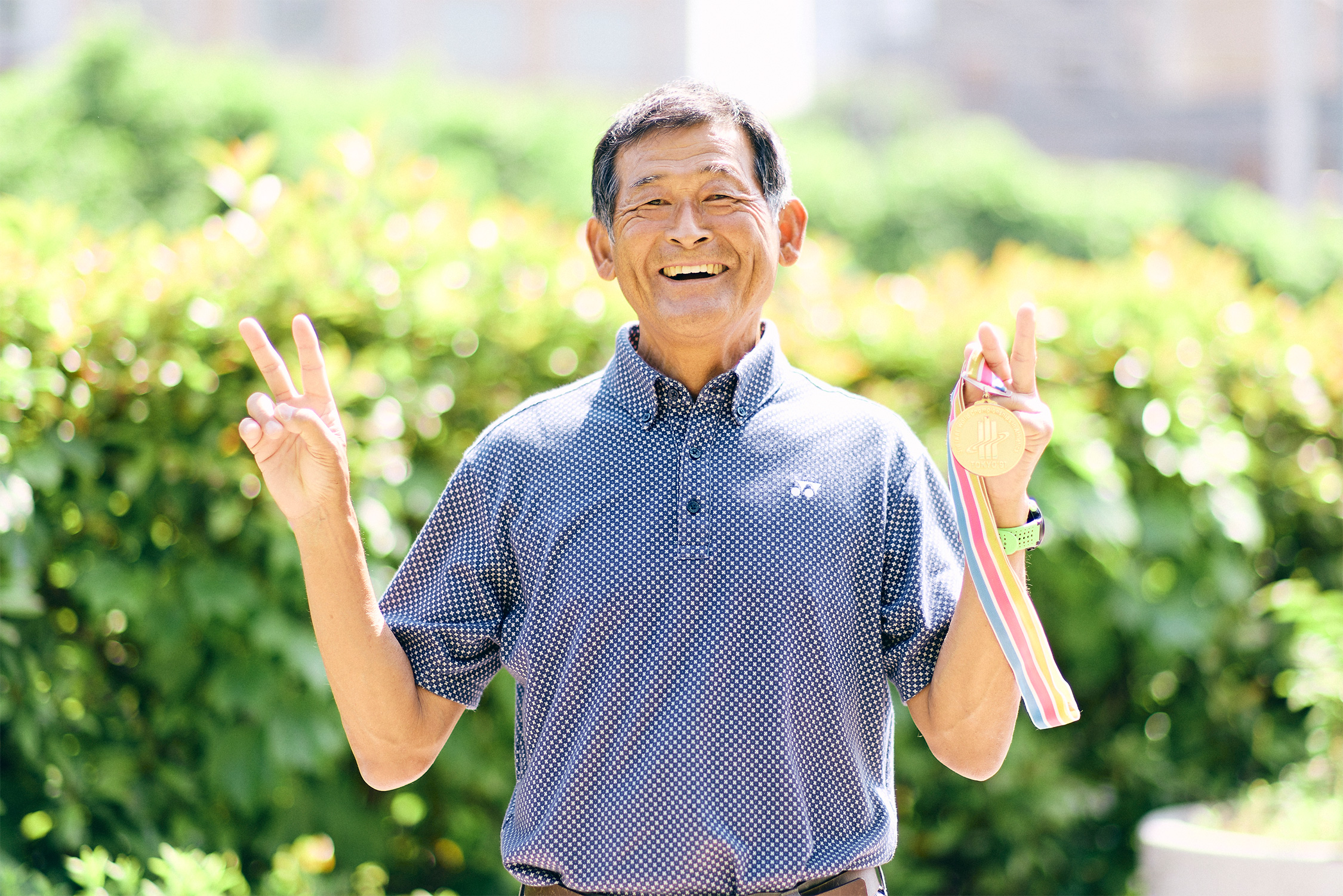
Hiromi Taniguchi/ Born in Miyazaki
Marathon legend
Born in 1960. Former Japanese long-distance runner with a personal best record of 2 hours 7 minutes and 40 seconds (19th place in Japanese men’s history). After graduating from Miyazaki prefecture Kobayashi High School and Nippon Sport Science University, he joined the Asahi Kasei corporate team. Began coaching for long-distance/ekiden team at Tokyo Electric Power Company Holdings, Inc. after retirement.
He won Japan’s first gold medal in the marathon at the 1991 World Athletics Championships in Tokyo. He was considered one of the favorites to win the 1992 Olympics in Barcelona the following year but at the water supply point after 20km, the heel of his left shoe was stepped on by a following rider, causing him to fall and lose time, which caused him to drop out of the race for the championship. However, he improved his position in the second half of the race and finished in 8th place. “I fell over” is a famous phrase in his interview after the goal.
Currently, he is making use of his unique background and unique character to continue to enliven the track and field world through marathon guest runners and lecture activities.
Web:https://taniguchi-hiromi.info/
text by Moritaka Ohashi
photographs by Uta Mukuo
2025.10.09
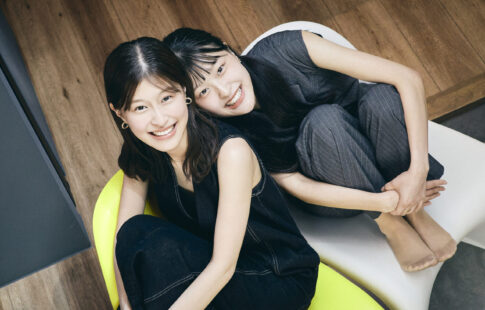
目次Until I accept my “Deaf self”A new scenery opened up by challengesBehind the 1 million You Tube […]
2025.10.09
目次Until I accept my “Deaf self”A new scenery opened up by challengesBehind the 1 million You Tube […]
2025.08.06

目次I was told that “I didn’t want to be born into a house like this”Hokkaido→ Yokohama→ Nagoya→ Yokohama […]
2025.08.06
目次I was told that “I didn’t want to be born into a house like this”Hokkaido→ Yokohama→ Nagoya→ Yokohama […]